-
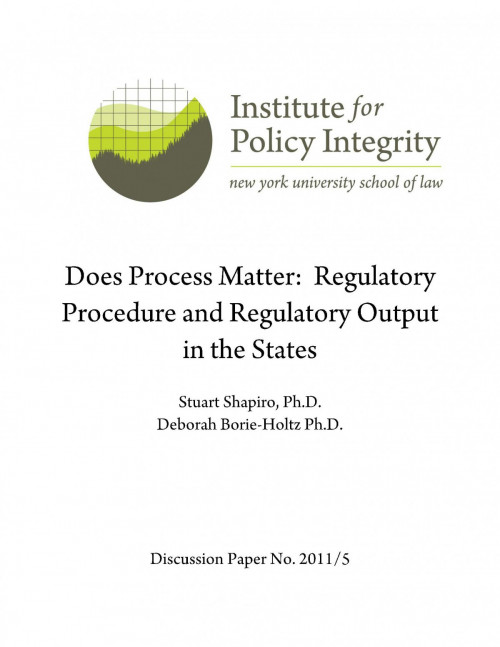
Does Process Matter
Regulatory Procedure and Regulatory Output in the States
Rulemaking in the states has become much more widespread than it was when many state legislatures began to pass their administrative procedures acts more than 40 years ago. A wide diversity of rulemaking procedures presents a natural laboratory in which to study several questions that have long interested scholars of the regulatory process. This paper finds that the level of rulemaking is more closely correlated to the lawmaking activity in the state rather than proceduralization which suggests no disrespect for the law, as Churchill argued, but rather that the lawmakers themselves have given rise to the thousands of regulations in the states.
-

Can Cost-Benefit Analysis of Environmental Policy Go Global?
The use of cost-benefit analysis of environmental policy is spreading from the United States, where it has the longest tradition, to other parts of the globe. This paper discusses the challenges posed for cost-benefit analysis as it spreads, and how it can evolve to meet those challenges.
-
_200_175_90.jpg)
Prevailing Academic View on Compliance Flexibility under Section 111 of the Clean Air Act
EPA will soon propose performance standards under Section 111 of the Clean Air Act for greenhouse gas pollution. Many argue that to be effective and efficient, the standards should incorporate compliance flexibility. This repport finds widespread agreement in the academic community that § 111 authorizes the use of many types of flexible approaches.
-
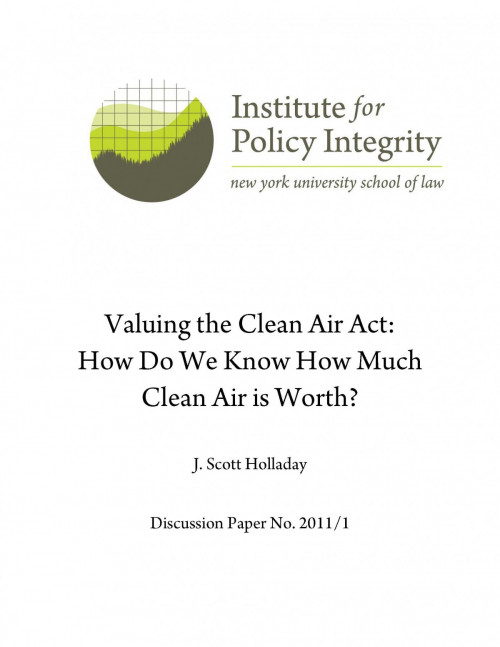
Valuing the Clean Air Act
How Do We Know How Much Clean Air is Worth?
EPA recently released a study evaluating the costs and benefits of amendments to the Clean Air Act between 1990 and 2020 to see what cleaner air means for human health and the economy. Holladay’s analysis of EPA’s numbers shows that they’re based on sound science.
-
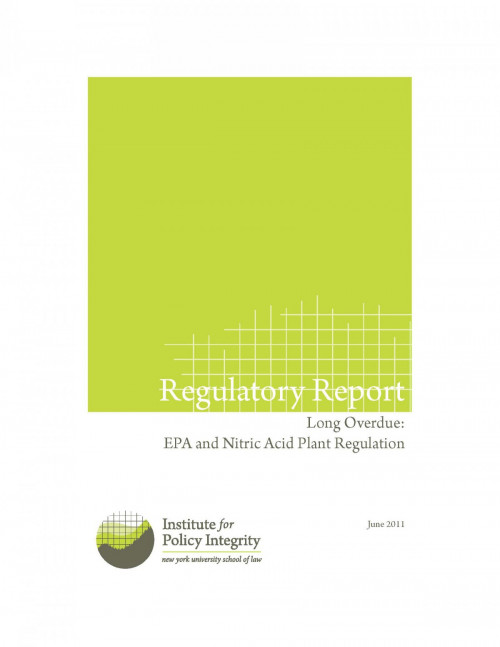
Long Overdue: EPA and Nitric Acid Plant Regulation
Nitric acid plants emit dangerous air pollutants that cause illness and alter the climate. This report finds EPA long overdue on a regulatory revision and at risk of allowing major costs to be imposed on the American public.
-
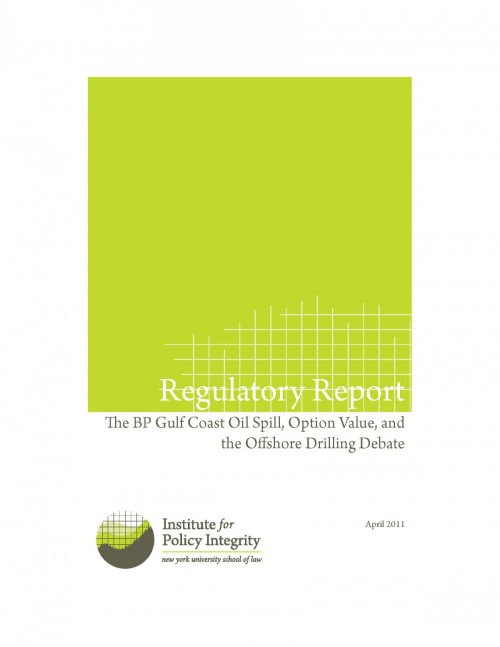
The BP Gulf Coast Oil Spill, Option Value and the Offshore Drilling Debate
One year after crude oil began gushing into the Gulf of Mexico, little action has been taken to prevent a similar disaster. A report authored by Gaia Larsen and Michael A. Livermore finds that overly simplistic economic analysis by the government may have helped lead to the accident.
-
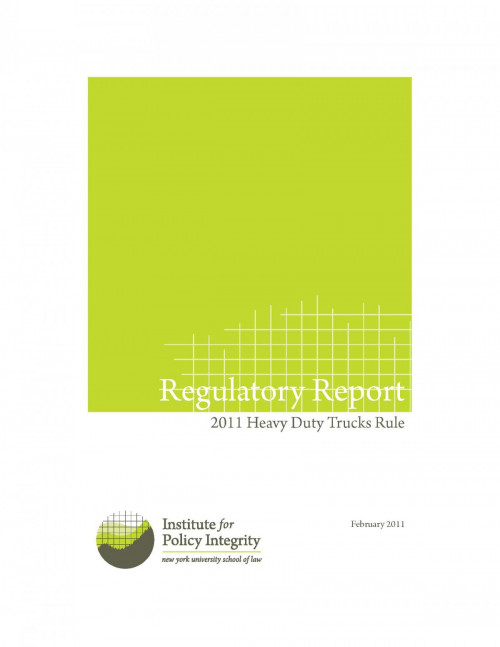
2011 Heavy-Duty Trucks Rule
EPA and NHTSA have taken a crucial step in addressing our greenhouse gas emissions and oil dependency by regulating the fuel efficiency of heavy-duty trucks for the first time. But, there is room for improvement.
-
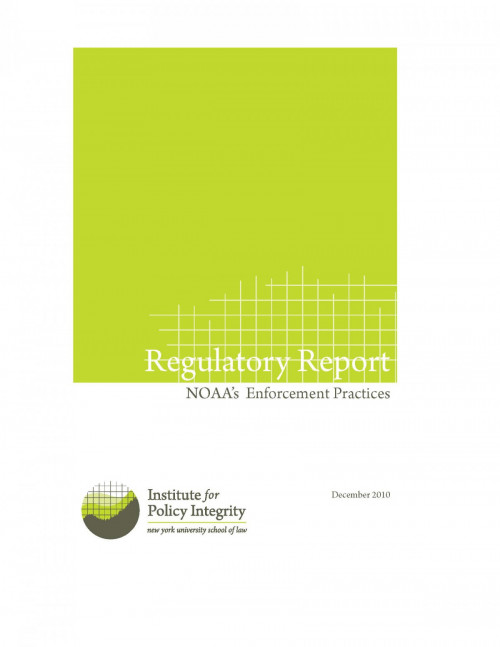
NOAA’s Enforcement Practices
This regulatory report recommends more economically effective fines that would increase the protection of our nation’s ocean life. It comes in response to a possible shift in NOAA’s policies that could risk a rise in over-fishing. The suggestion is properly calibrated fees combined with more rigorous enforcement that, together, will serve to efficiently deter harm to marine life.
-
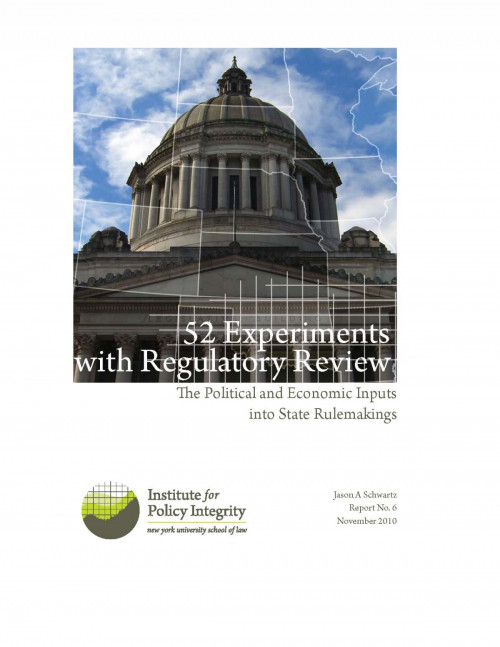
52 Experiments with Regulatory Review
The Political and Economic Inputs into State Rulemaking
After more than a year of research, surveys, and analysis, Policy Integrity is the first to compile the regulatory practices of all fifty states in one document. Comparing each set of laws and guidelines on paper to direct feedback from leaders on the ground, the report assigns states a grade based on the quality of their review process.
-
_110_170_90.jpg)
Regulatory Change and Optimal Transition Relief
Grandfathering has become a common practice in regulating industries like coal power generation. But it is not clear that phasing out polluting plants is beneficial. The costs of retrofitting existing plants to comply with new standard can be higher than the compliance costs for a new plant. Since the costs of shifting to new technology must be borne at some point, (since granfathering can’t be indefinite) it might be best not to grandfather at all so that society can benefit from lower pollution levels earlier. That’s just one of the arguments examined in this working paper.
Viewing recent projects in Publications
